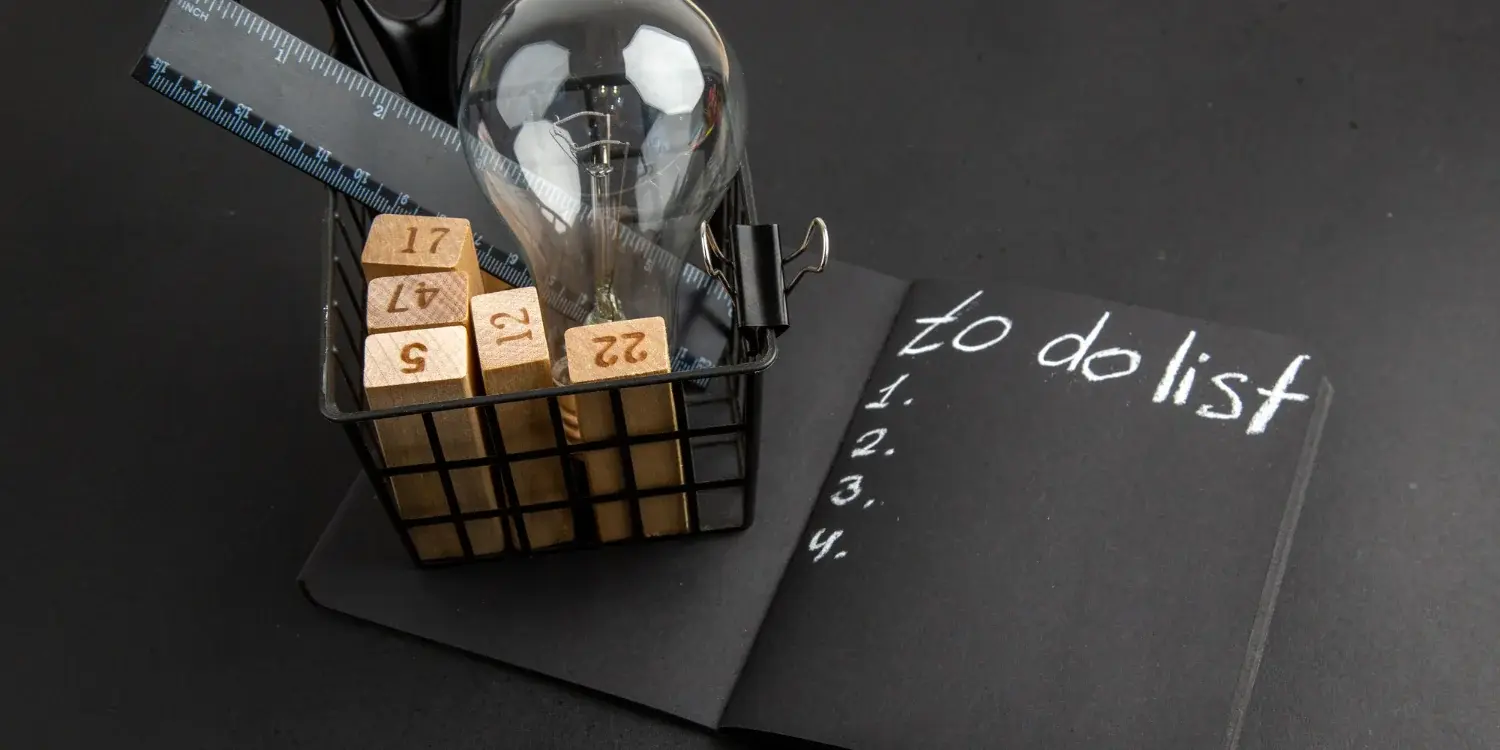12 Proven Techniques to Boost Your Focus and Productivity
Do you find yourself starting your day determined yet ending it frustrated, distracted, and unproductive? Believe me, we've all been there. The constant buzz from smartphone notifications, email overload, social media scrolling—they all contribute silently to our diminished focus. In fact, recent studies suggest the average office employee is interrupted every three minutes, and it takes up to 23 minutes to regain concentration after disruptions. So, it's no surprise we struggle to complete tasks effectively.
But here's the good news: Enhancing your focus and boosting productivity is not as challenging as you might think. With a few proven, practical strategies, you can significantly improve cognitive performance, reclaim lost time, and accomplish your goals efficiently. If you're tired of feeling scattered and frustrated with your workflow, this post will guide you through 12 tested methods to sharpen focus and achieve peak productivity.
Each technique outlined below has been backed by experts, research, and real-life practitioner success. By consistently applying even a handful of these methods, you'll quickly notice remarkable improvements in how efficiently you approach your daily tasks—and how satisfied you feel at day's end.
1. Utilize the Pomodoro Technique for Time Management
The Pomodoro Technique is one of the easiest yet most effective tools to instantly boost your ability to focus. Created by Francesco Cirillo, this time management method involves working in dedicated intervals—usually 25 minutes—followed by short breaks of around five minutes. Structuring your workflow this way encourages deeper concentration and reduces burnout, a cornerstone of cognitive performance improvement.
For example, let's say you have a challenging report due. Instead of working sporadically throughout the day, set a timer for 25 minutes and fully commit your attention solely to that task. Once the timer signals your short break, briefly step away from your desk, stretch, walk around, or grab a glass of water. After repeating this cycle four times, take a longer break of 15–30 minutes. According to neuroscientist Daniel J. Levitin, author of The Organized Mind, frequent short breaks can significantly improve cognitive stamina and reduce mental fatigue.
2. Create a Distraction-Free Work Environment
Did you know the average person checks their smartphone well over 100 times per day? This constant interruption severely diminishes our ability to maintain focused attention on important tasks. Therefore, eliminating or minimizing distractions becomes essential for productivity enhancement.
Practical ways to create a distraction-free space include silencing smartphone notifications, employing website blockers during peak productivity periods, and using noise-cancelling headphones. For instance, apps like Freedom or FocusMe block distracting websites or social media platforms for selected periods, helping you stay on track. Arianna Huffington, founder of The Huffington Post, emphasizes the power of creating environments that truly support your productivity, calling the practice "environmental optimization."
3. Practice Single-Tasking Instead of Multitasking
Despite popular belief, multitasking decreases productivity and increases the likelihood of errors. Studies from Stanford psychologist Clifford Nass reveal that multitasking can impair cognitive performance by up to 40%. Single-tasking, however, marshals all your cognitive resources on one task at a time, creating higher-quality outputs and avoiding cognitive fatigue.
Start practicing single-tasking by clearly defining your priority task each morning. Close unnecessary browser tabs, apps, and software programs while you work. Make your intention explicit: "For the next half-hour, I will fully commit to this one project." You might find it helpful to keep a small notepad nearby to jot down any unrelated thoughts that come up. Tackling tasks with singular focus improved productivity for business leader and author Gary Keller, who detailed this concept extensively in his bestselling book The ONE Thing.
4. Leverage Your Peak Productivity Hours
Not all hours are created equal! Each of us has unique rhythms during the day when we're notably more alert and focused. Understanding and tapping into your peak productivity window is a game-changing productivity strategy.
Observing your mental clarity at different times helps pinpoint your personal productivity peaks. Once identified, reserve these highly effective hours strictly for deep work and critically important tasks. For instance, author and productivity expert Chris Bailey documented his experimentation with productivity in his book The Productivity Project and found that purposefully scheduling challenging tasks during peak cognitive times greatly improved his efficiency and output quality.
5. Optimize Your Energy with Healthy Lifestyle Practices
Your cognitive performance depends significantly on your overall health and energy management. Integrating strategic lifestyle habits—such as hydration, adequate sleep, and nutritious foods—can astronomically boost both your focus and productivity.
Incorporating regular exercise boosts brain function and mental stamina, enabling sustained attention through demanding tasks. Hydration directly influences brain performance, with even mild dehydration causing noticeable cognitive decline. For instance, a well-regarded study published in Frontiers in Human Neuroscience demonstrated how hydration significantly impacted individuals' short-term memory and concentration scores.
6. Implement Mindfulness and Meditation Exercises
The practice of mindfulness and meditation stimulates cognitive function and enhances your attention span. Regular meditation has been scientifically proven to increase activity in the prefrontal cortex—the brain region governing focus and executive functions.
Create a habit of daily meditation or mindful breathing sessions lasting even just 10 minutes. Apps like Headspace and Calm offer guided sessions specifically designed to improve focus, performance, and productivity. Entrepreneur and author Tim Ferriss famously credits his consistent mindfulness practice with drastically elevating his cognitive clarity and daily productivity.
7. Clearly Define Goals and Priorities
Clear goals provide direction and sharpen your attention on meaningful tasks. Having vague ambitions or unclear next steps often leads to hesitation and procrastination, blocking your path to productivity.
A practical way to enhance goal clarity involves the SMART (Specific, Measurable, Achievable, Relevant, Time-bound) goal framework. For example, rather than saying, "I'll finish the report this week," instead specify: "Today, I'll complete section two of my three-part report by 5 pm." Productivity coach Brian Tracy champions this concept extensively in his book Eat That Frog, asserting that clear and specific planning dramatically contributes to better focus and workload management.
8. Regularly Schedule Cognitive Downtime
An underappreciated method to sustain cognitive performance is intentionally setting aside moments of mental downtime. Short breaks, vacations, or even naps strategically enhance cognitive function and productivity.
Create opportunities to disconnect completely, enabling your brain to consolidate insights and rejuvenate mental capacity. For example, powerhouse leaders like Richard Branson embrace regular breaks and downtime, noting significant improvements in both efficiency and innovative thinking afterward.
9. Utilize Cognitive Enhancing Productivity Tools
Technology can significantly amplify your ability to concentrate if used strategically. From task managers like Trello or Asana to note-taking applications like Evernote—productivity software tools can dramatically improve workflow management and cognitive clarity.
Integrating these tools, set daily digital routines, prioritizing tasks and clearly defining deliverables. As productivity expert David Allen famously explains in Getting Things Done, productivity tools that streamline your workflow greatly reduce mental overhead, enhancing your clarity, focus, and effectiveness.
10. Foster Productive Habits through Habit Looping
A powerful boost in productivity emerges not from motivation alone, but from building productive habits. Harvard researcher Charles Duhigg explains in The Power of Habit how habits are formed through loops—cue, routine, and reward.
Identify cues linked to your ideal productive habit, practice consistently, and reap the reward of enhanced productivity and focus. For instance, you may begin every morning (cue) with planning your day (routine) and then enjoy your coffee (reward), creating lasting productivity habits effortlessly.
You May Also Like
These Related Stories
12 Proven Techniques to Boost Your Focus and Productivity

Proven Methods to Overcome Procrastination and Boost Focus

No Comments Yet
Let us know what you think